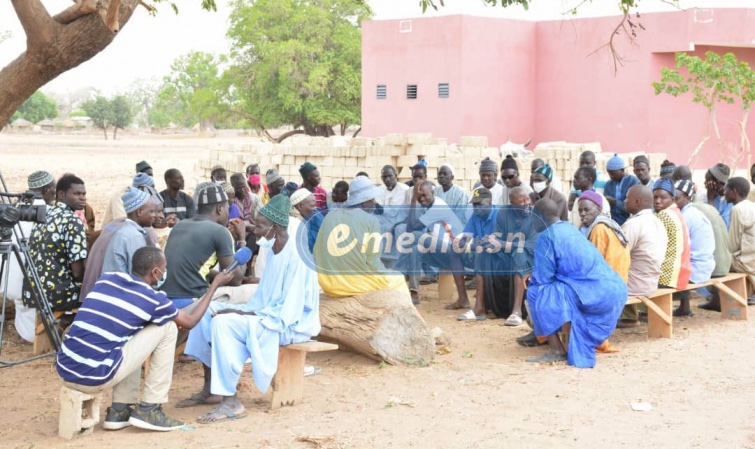In this interview, Mamadou Mballo, a legal expert on land tenure, deciphers the land dispute between the head of Sedima, Babacar Ngom, and the people of Ndingler. He also discusses the land governance issue, which has been weakened by the inefficient legal and regulatory framework that governs the land sector.
How do you analyze the ongoing land dispute in Ndingler?
On one hand, this dispute, like many others in the country, is the result of the food, financial and fuel crises that the world experienced during 2008. This crisis was the trigger for a scurry of companies/economic and political actors towards African lands. Senegal has unfortunately not escaped this reality. This has resulted in strong pressure on the fertile lands of local communities, which have suddenly become the object of all forms of interest for the revival and prosperity of the economic activities of investors and political and religious elites. In order to preserve their land, the source of their survival, communities are often led to organize themselves in order to make themselves heard, with these movements generally leading to opposition and conflict.
« NDINGLER IS A PROOF OF A WEAKENED LAND TENURE SYSTEM »
On the other hand, the Ndingler case is proof of the existence of weak land governance due to the inefficient legal and regulatory framework that governs the land sector. Indeed, the principle of national ownership that governs most community land is based on an essential principle: the absence of land ownership. Hence, on the surface, no property right can exist on these lands, let alone a land title. The philosophy of the Senegalese legislator of 1964 is based on the principle that the land belongs to the nation and that this land must serve the socio-economic and cultural development of local communities. Therefore, in the spirit of the law, for an individual, even a revered national investor, to hold a title to this land raises questions about upholding the intent of the law.
And even if the state implements Article 3 of the law on the national domain by registering community land in order to facilitate access to it by a private investor, this should only be for reasons of public utility, following consultation with the people who used the land. The big question now is, with regard to the Ndingler case, how is the SEDIMA group’s project more important or of greater public utility than the use of this land by local communities to guarantee their food and nutritional security, the employment of young people and women and their pastoral activities?
How to enable local communities to adequately benefit from their land?
Generally speaking, the law enables communities to fully exercise their land rights. It is rather its lack of enforcement that causes significant harm to local communities. In addition, by wiping out customary rights/uses and establishing a modern law, the law on the national domain has created the conditions for its own limitations, causing resistance from communities who continue to assert their customary rights over the land. Instead of challenging existing customary rights to community lands, it would be wiser to recognize and strengthen them. Laws must be adapted to the local beliefs and practices of the communities, otherwise they will be exposed to all forms of defiance/resistance.
What should be the position of the State of Senegal in this conflict?
In this case, the State should adopt a mediating role between the two parties (Communities and SEDIMA Group). This is, in fact, the path that the State has chosen from the beginning. The legality of Mr. Ngom’ s case is confronted with the right of the people of Ndingler. It is only through consultation and dialogue that a consensus can be reached for everyone’s benefit, because even Mr. Ngom has no interest in living in conflict with the people, even if they decide to leave him the land. And the State, as guarantor of public order, social peace and the rights and fundamental freedoms of citizens, must ensure that the situation returns to normal in accordance with the provisions of the Constitution and the international treaties and conventions on human rights to which it is a signatory.
Source: http://emedia.sn/

